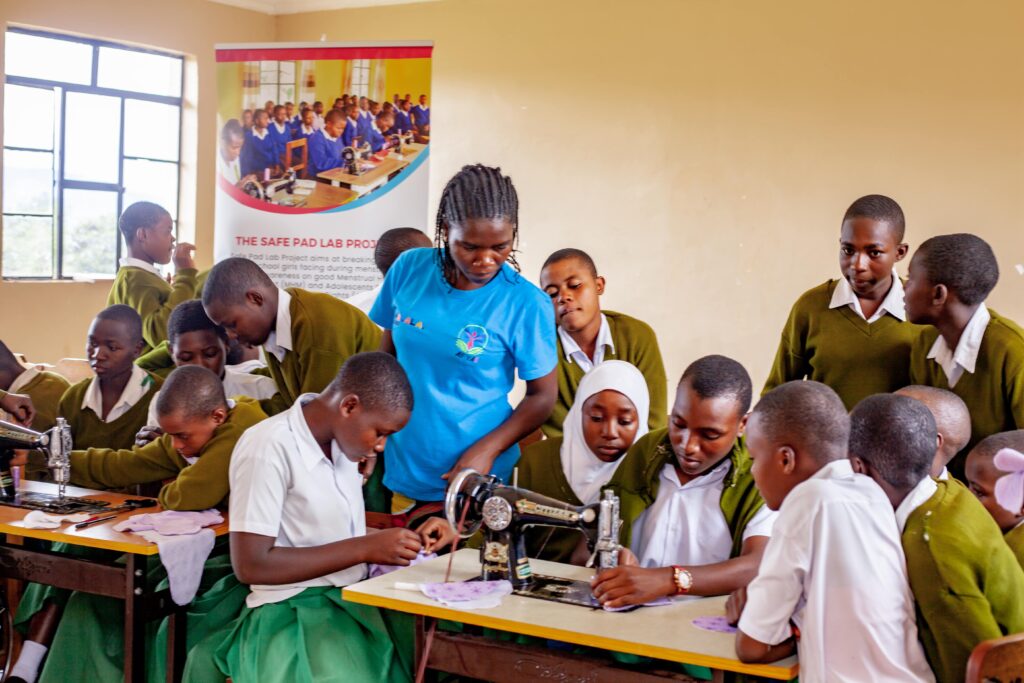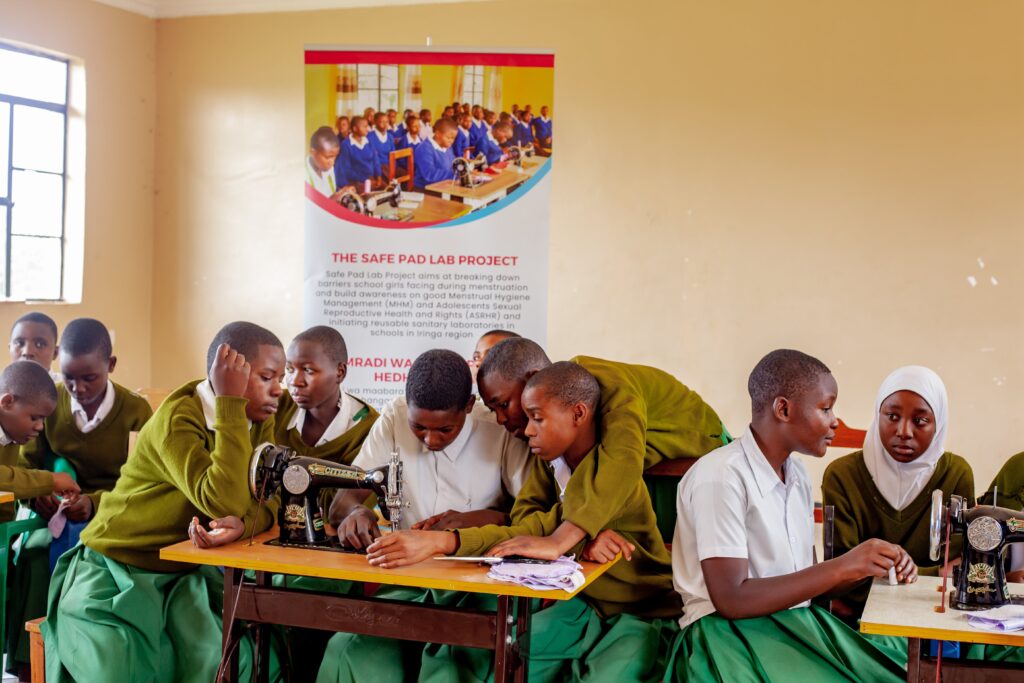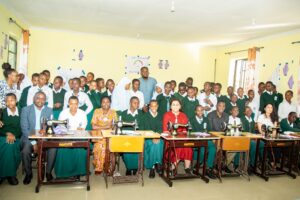No products in the cart.
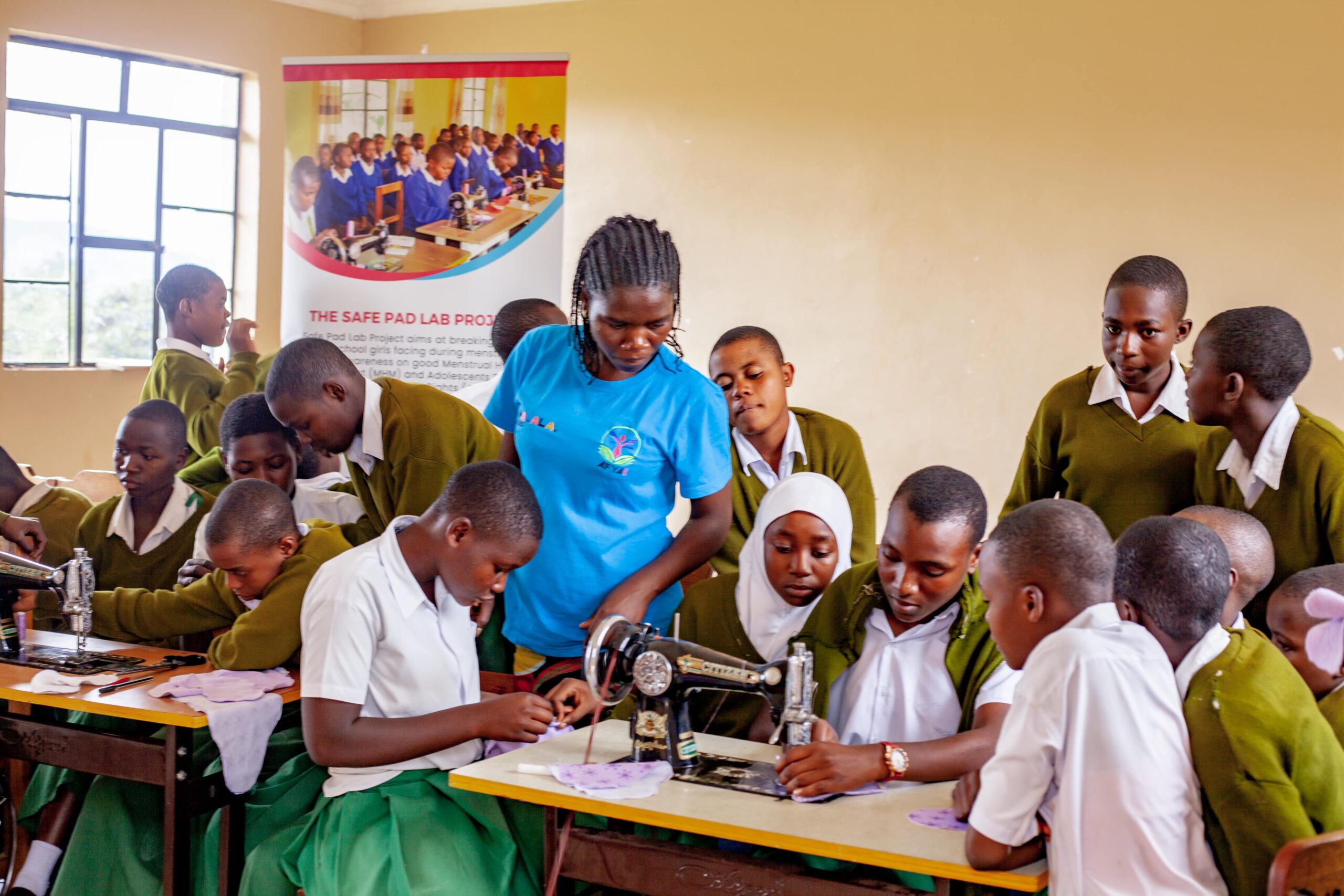
Progress of Reusable Sanitary Pads in schools
In an effort to tackle the Menstrual Hygiene challenges faced by female students, our Afyaplus Community-Based Trainers team conducts sewing training sessions every Thursday at Ilula Secondary School and fourteen other schools in the Iringa region, tailored to each school’s timetable. The project witnessed a strong desire from students themselves all boys and girls, who expressed a desire to learn how to make reusable pads.
Past attempts to provide disposable sanitary pads highlighted the financial burden on students, who often resorted to manual labor, such as working in gardens or performing household tasks, to afford these costly products. Earning a meager 3,000 TZS, many girls faced financial strain, leading some to seek monetary assistance from men, increasing their risk of early marriage and school dropout.
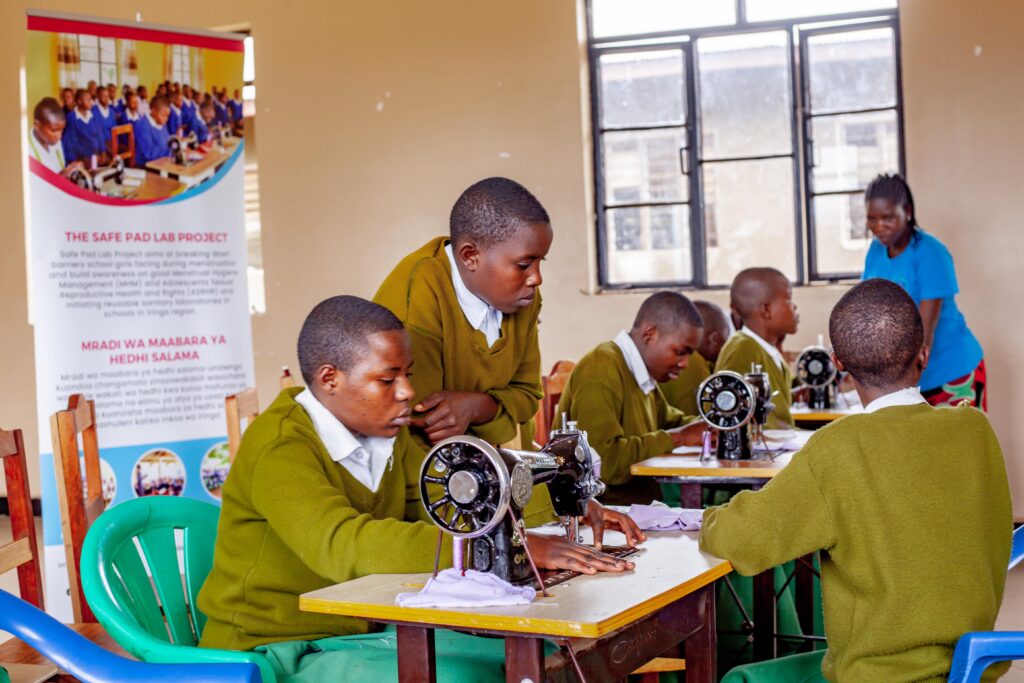
Recognizing the urgency, the Afyaplus team has not only trained students in making reusable pads but also educated them on maintaining personal hygiene during menstruation. To support this effort, we have provided three sewing machines, a button press machine, and an overlocking machine to the schools.
Lack of access to menstrual products can result in school absenteeism, significantly affecting girls’ educational opportunities. However, when girls have proper Menstrual Hygiene Management (MHM) facilities and products, they are more likely to stay in school, participate fully in educational activities, and achieve better academic outcomes.
This collaborative effort aims to empower young girls by equipping them with the knowledge and skills to create their own reusable pads, relieving them of financial burdens and dependency on external resources. By addressing this critical need, the Safe Pad Lab Project seeks to mitigate the adverse consequences of limited access to menstrual hygiene products, including early marriages and school dropouts.
We hope the school administration will prioritize the implementation of the Safe Pad Laboratories sessions, ensuring senior students can effectively impart their expertise to peers. The provision of necessary materials will enable the girls to immediately practice their newfound skills, fostering self-reliance and dignity.
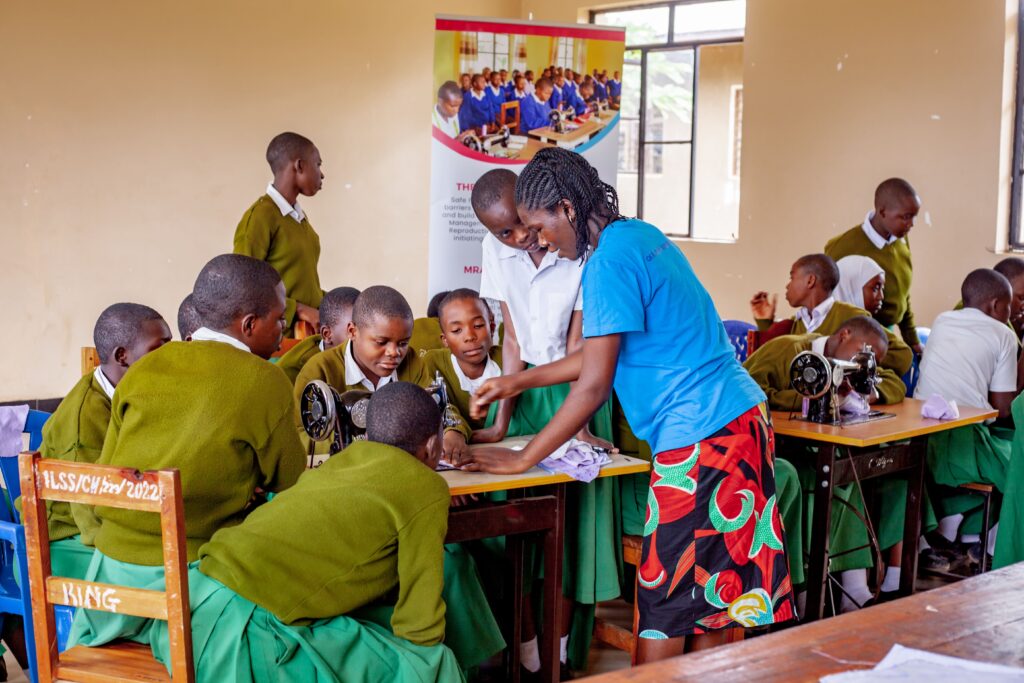
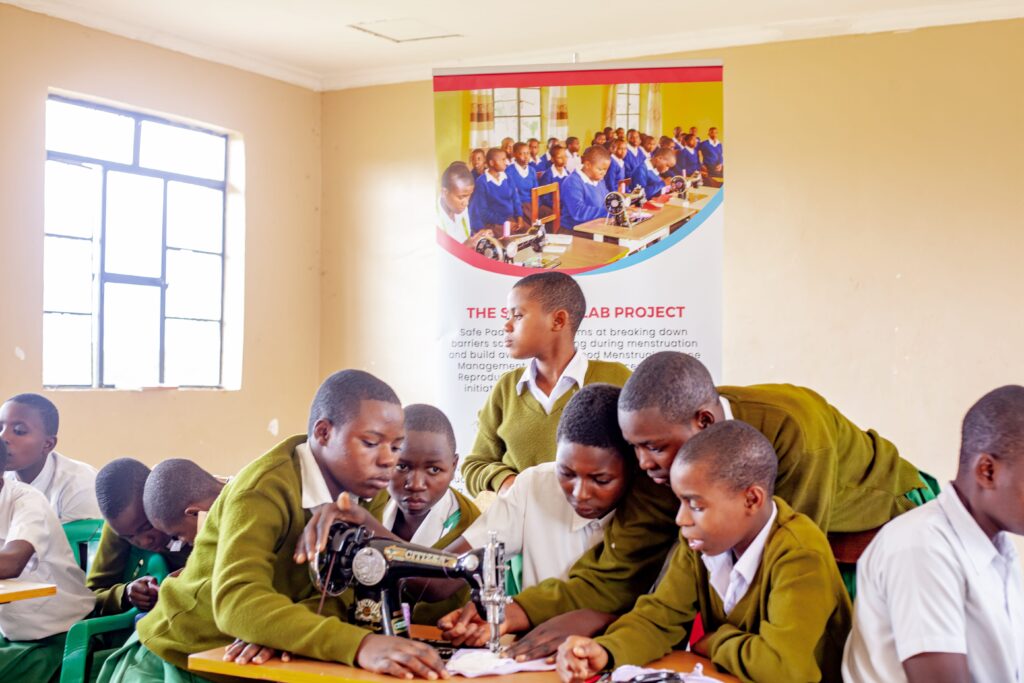
By addressing the challenges female students face in managing menstruation, this project promotes gender equality and creates an inclusive educational environment. The training equips girls with practical skills and educates them on the importance of personal hygiene during menstruation. Ultimately, empowering these young girls will enable them to pursue their education unhindered and contribute to their long-term success.
